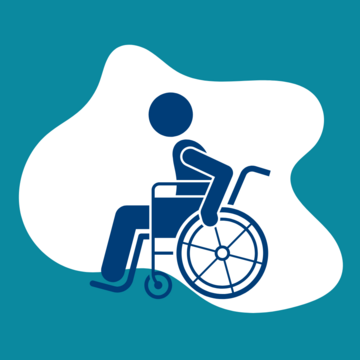Medicaid Programs for People With Disabilities
Wisconsin Medicaid is a joint federal and state program that helps more than one million people throughout the state get:
- High-quality health care.
- Long-term care.
- Other services that promote your health and well-being.
Explore below to find programs that meet your needs.

-
Children’s Long-Term Support Program
Learn more about the Children’s Long-Term Support (CLTS) Program. Find details for families, counties, and providers.
-
Family Care
Family Care is a Medicaid long-term care program. Learn more about how it works, who is eligible, and program benefits.
-
Family Care Partnership
Learn more about Family Care Partnership. It serves as a Medicaid program for older adults and people with disabilities.
-
IRIS (Include, Respect, I Self-Direct)
IRIS (Include, Respect, I Self-Direct) is a self-directed program for adults with disabilities and elderly people in Wisconsin. Learn more about IRIS and how it can help you.
-
Katie Beckett Medicaid
Katie Beckett Medicaid is a special eligibility pathway for children under 19 who have certain health care needs and live at home. Learn more.
-
Medicaid: Housing Support Services Health Services Initiative
This initiative helps families with children 18 years and younger and people who are pregnant find and keep stable housing if they're experiencing homelessness.
-
Medicaid: Housing Support Services Medicaid Benefit
This benefit offers housing support to Wisconsin Medicaid members experiencing housing insecurity and grappling with substance use or mental health challenges.
-
Medicaid Purchase Plan
The Medicaid Purchase Plan provides health care coverage for certain people with a disability. Learn more.
-
Medicaid: Qualified Disabled and Working Individual Program
The Qualified Disabled and Working Individual Program helps you pay for Medicare Part A premiums if you have a disability and are working. Learn more.
-
Medicaid: Qualified Medicare Beneficiary (QMB) Program
Learn how the Qualified Medicare Beneficiary Program helps you pay for Medicare Part A and Part B coinsurance, deductibles, and premiums.
-
Medicaid: Specified Low Income Medicare Beneficiary Plus Program
Learn how the Specified Low Income Medicare Beneficiary Plus Program helps pay for Medicare Part B premiums if you’re not enrolled in certain Medicaid programs.
-
Medicaid: Specified Low Income Medicare Beneficiary Program
The Specified Low Income Medicare Beneficiary Program helps you pay for Part B premiums. Learn how.
-
Supplemental Security Income-Related Medicaid
Supplemental Security Income (SSI)-Related Medicaid provides health care coverage for adults 65 and older and people who are blind or disabled. Learn more.
